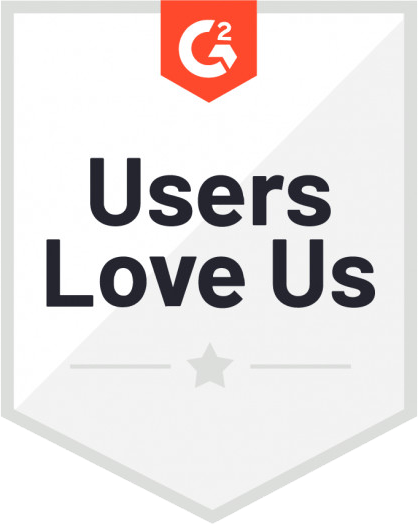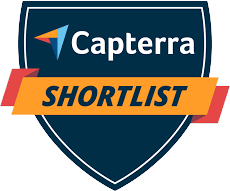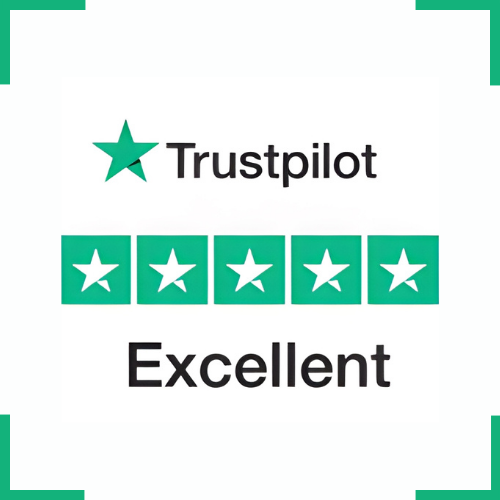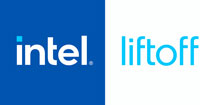📊 What’s Driving AI Adoption in Law Firms Today?
📈 Current AI Usage Statistics Across Legal Practice
Legal professionals are embracing AI at record speed. Recent data shows 31% of lawyers personally use generative AI at work, up from 27% in 2023. Law firm adoption sits at 21%, though this varies significantly by firm size.
Large firms with 51+ lawyers report 39% adoption rates. Small firms with 50 or fewer lawyers show 20% adoption. Solo practitioners often lead in trying new technology, with 53% expecting mainstream AI adoption within three years.
Mid-sized firms are becoming the leaders in strategic AI implementation. They have the resources to invest in proper tools while maintaining the agility to adopt new technology quickly.
💰 Why Law Firms Invest in AI Tools
The benefits driving AI adoption are clear and measurable. Time savings rank as the top reason, with AI reducing contract review time from hours to minutes. Legal research that once took days now takes hours.
Cost reduction follows closely. Firms using AI report 30-50% efficiency gains in document review tasks. Client service improvements also drive adoption, as AI enables 24/7 responsiveness and faster turnaround times.
Competitive advantage plays a major role. Clients increasingly expect their law firms to use modern technology. Firms without AI tools struggle to match the speed and pricing of AI-enabled competitors.

🔧 Best AI Tools for Legal Research and Analysis
⚖️ CoCounsel: Your AI Legal Research Assistant
CoCounsel, developed by Thomson Reuters, stands out as the most comprehensive legal research AI. Built on GPT-4 but trained specifically for legal work, it connects with Westlaw and other legal databases for reliable research.
🔍 Lexis+ AI: Advanced Legal Research Platform
Lexis+ AI combines traditional legal research with modern AI capabilities. The platform offers both legal-specific AI and general AI options, letting users choose the best tool for each task.
🎯 Harvey AI: Enterprise-Level Legal Intelligence
Harvey AI targets large law firms and corporate legal departments. Built on GPT-4 with legal-specific training, it handles everything from contract drafting to regulatory compliance analysis.
📄 Top AI Tools for Document Review and Contract Analysis
🤖 Diligen: Machine Learning Contract Analysis
Diligen transforms contract review through advanced machine learning. The platform identifies key clauses, provisions, and changes with remarkable accuracy, producing convenient summaries for legal teams.
Integration with CRM systems streamlines workflows. Lawyers can import documents directly between platforms, maintaining organized file systems while leveraging AI analysis.
✍️ Spellbook: AI Writing Assistant for Lawyers
Spellbook works directly inside Microsoft Word, eliminating the need to switch between platforms. The tool suggests contract clauses, provides redlining assistance, and benchmarks agreements against industry standards.
🎯 AI Tools for Practice Management and Workflow Automation
💼 Clio Duo: Built-in AI for Case Management
Clio Duo integrates AI directly into the leading case management platform. Using Microsoft Azure OpenAI GPT-4 technology, it provides contextually relevant insights based solely on your firm’s data.
📊 MyCase IQ: Analytics-Driven Legal AI
MyCase IQ brings artificial intelligence to law firm analytics and document management. The platform generates concise document summaries and provides natural language access to firm data.
🔒 Cloud vs On-Premise AI Tools for Law Firms
| Feature | ☁️ Cloud-Based AI | 🏢 On-Premise AI |
|---|---|---|
| Setup Time | Immediate access | Weeks to months |
| Initial Cost | Low monthly fees | High upfront investment |
| Updates | Automatic | Manual implementation |
| Data Control | Vendor managed | Complete firm control |
| Scalability | Instant scaling | Hardware dependent |
| Remote Access | Built-in capability | Requires VPN setup |
Security Considerations for Cloud AI
Choose vendors with SOC 2 compliance and legal industry experience. Most reputable legal AI vendors provide enterprise-grade security that often exceeds what individual firms can implement on-premise.
📚 AI Tools by Legal Practice Area
⚖️ Litigation: Discovery and Case Preparation
Specialized Tools: Relativity, Everlaw, CoCounsel
Litigation requires tools that handle large document volumes, identify relevant evidence, and prepare case materials efficiently. AI excels at pattern recognition and document classification.
🏢 Corporate Law: Contract and Compliance Management
Recommended Platforms: Harvey AI, Diligen, LawGeex
Corporate legal work involves high-volume contract review, regulatory compliance, and transaction support. AI tools accelerate due diligence and ensure comprehensive coverage.
🏠 Real Estate Law: Document Processing and Client Communication
Real estate practices benefit from AI tools that handle repetitive document work and maintain client communication throughout lengthy transaction processes.
MissNoCalls real estate call center AI specifically addresses real estate industry needs, handling client inquiries about property transactions and scheduling.
Document automation tools like Spellbook help with standard real estate contracts, while communication platforms ensure clients stay informed throughout the buying or selling process.
🎯 Best AI Tools for Specific Integrations
📊 Clio Integration Champions
Top Integrated Tools: Clio Duo, Diligen, Smith.ai
Firms using Clio benefit from tools that integrate seamlessly with their existing workflow. Clio Duo provides the deepest integration as a native feature.
📝 Microsoft Word Compatible AI
Word-Integrated Solutions: Spellbook, Microsoft Copilot
Lawyers spend significant time in Microsoft Word, making integration essential for adoption. Spellbook provides the most comprehensive legal-specific features within Word.
🗂️ iManage Integration Options
Document Management AI: Harvey AI, Relativity
Large firms using iManage need AI tools that work within their existing document management systems. Harvey AI offers enterprise-level integration capabilities.
💰 AI Tools by Budget and Case Volume
💵 Budget-Conscious Options (Under $100/month)
Affordable Solutions: ChatGPT Plus, Spellbook, Basic MissNoCalls
Small budgets don’t eliminate AI options. Several powerful tools provide significant value at modest monthly costs.
💰 Mid-Range Solutions ($100-500/month)
Balanced Options: Clio Duo, Diligen, Smith.ai
This price range offers comprehensive features without enterprise complexity. Tools provide professional capabilities suitable for growing practices.
💎 Enterprise Solutions ($500+/month)
Premium Platforms: Harvey AI, CoCounsel, Relativity
High-volume practices require enterprise-grade capabilities. These platforms handle complex workflows and provide dedicated support.
🚀 How to Choose the Right AI Tools for Your Practice
🎯 Assessing Your Current Workflow Needs
Start by identifying your biggest time drains and pain points. Document how much time your firm spends on research, contract review, client communication, and administrative tasks.
Survey your team about their daily frustrations. Often, the best AI tool targets your most time-consuming manual process. Quick wins build confidence and demonstrate AI value to skeptical team members.
Assessment Questions:
🔍 Key Evaluation Criteria for Legal AI
Security and Compliance: Verify SOC 2 compliance, encryption standards, and data handling policies. Legal AI vendors should understand attorney-client privilege and confidentiality requirements.
Integration Capabilities: Choose tools that connect with your existing software. Seamless integration reduces training time and increases adoption rates.
User Experience: Test the interface with actual users. Complex tools often fail because lawyers won’t use them consistently.
Vendor Support: Evaluate training resources, customer support quality, and implementation assistance. Good vendors provide ongoing support as your needs evolve.
📈 Implementation Strategy for Success
Phase 1: Start Small
Choose one tool that addresses a specific problem. Train a small group of early adopters who can become internal champions.
Phase 2: Measure and Expand
Track usage, time savings, and quality improvements. Use data to build support for broader implementation.
Phase 3: Scale Gradually
Add tools and users systematically. Rushing implementation often leads to poor adoption and wasted investment.
Training Considerations:
🏢 AI Tools by Law Firm Size
👤 Solo Practitioners: Affordable AI Solutions
Budget-Friendly Options: ChatGPT, Spellbook, MissNoCalls
Solo lawyers need cost-effective tools that provide immediate value without complex implementation. Focus on solutions that address your biggest time drains first.
ChatGPT offers broad utility for document drafting and research at minimal cost. Spellbook provides professional contract assistance at reasonable pricing. MissNoCalls pricing options include packages suitable for solo practice needs.
Implementation Strategy for Solo Practitioners:
🏢 Small Firms (2-10 Lawyers): Scalable AI Platforms
Recommended Tools: Clio Duo, Diligen, Smith.ai
Small firms benefit from integrated solutions that grow with their practice. Look for tools that handle multiple functions while maintaining simplicity.
🏛️ Large Firms (50+ Lawyers): Enterprise AI Solutions
Enterprise Options: Harvey AI, CoCounsel, Relativity
Large firms require sophisticated platforms that handle complex workflows and maintain security standards. Enterprise solutions offer advanced features and dedicated support.
🗣️ Never Miss Another Lead with AI Voice Technology
While you’re optimizing your legal research and document review, don’t forget about the most critical touchpoint: client communication. Every missed call is a missed opportunity.
MissNoCalls provides 24/7 AI voice agents specifically designed for law firms. Our advanced AI handles initial client inquiries, qualifies leads, and ensures no potential client ever reaches voicemail again.
Join law firms already using MissNoCalls to capture more leads and provide better client service around the clock.








